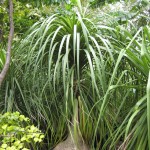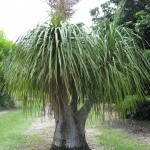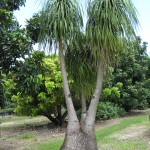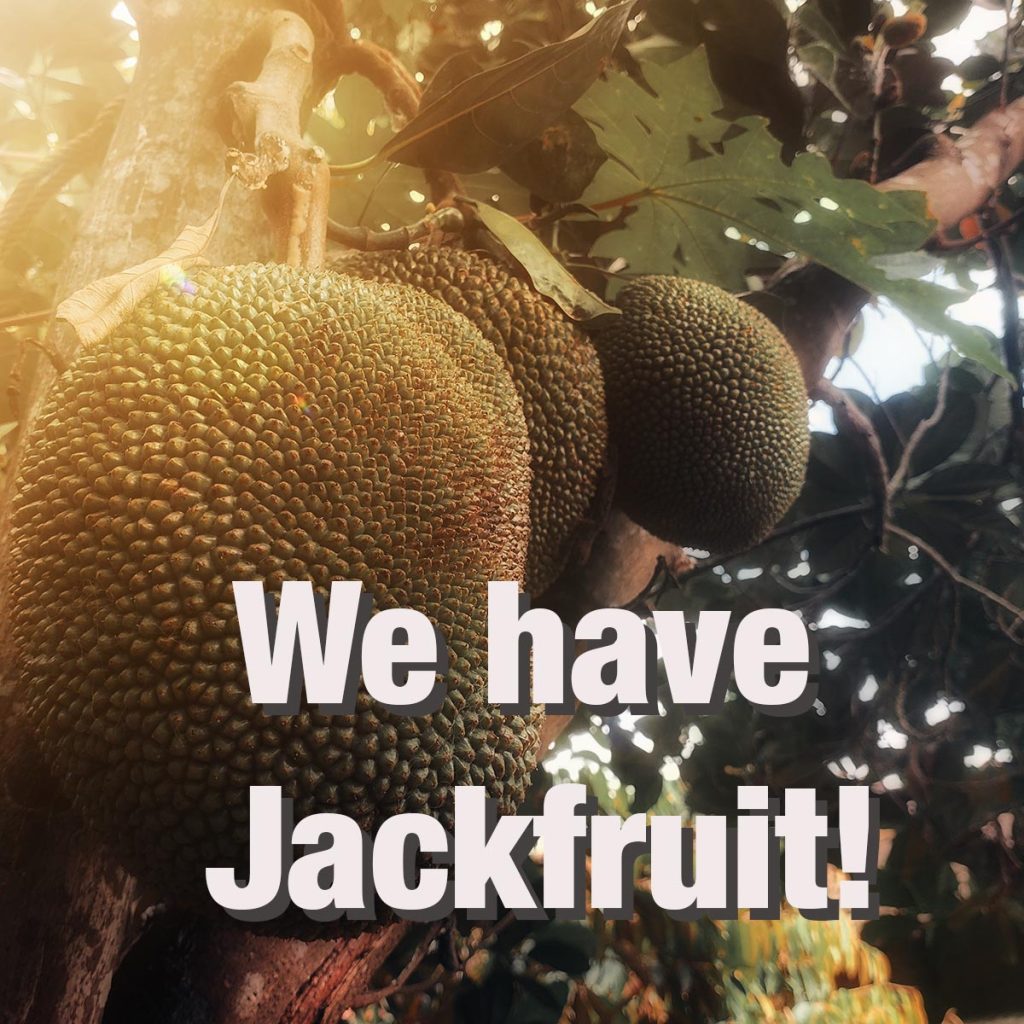Beaucarnea recurvata
Quick! Can you name a beautiful ornamental succulent plant that somehow belongs in the same family as hyacinth and asparagus? Our choice is Beaucarnea recurvata, a uniquely constructed tree native to arid parts of southeastern Mexico. In those areas, Beaucarnea can reach 30 ft. high after many years, but in cultivation it tends to stay shorter. It starts life as a single-trunked plant, but as it grows it may develop several upright branches, each topped by a rosette of flat, long, narrow ribbon- like leaves. Upon maturing, it produces creamy-white flowers on a stalk extending above each tuft of leaves.
At the opposite end of the plant is another distinctive feature — a swollen base, or caudex, vaguely resembling an elephant’s foot. The purpose of this structure is to store water, and therein lies a clue as to Beaucarnea‘s cultural preference: It thrives in sunny, dry conditions. Fortunately, it tolerates southern Florida’s climate perfectly well as long as it is planted in a well-drained site. It is also capable of thriving in container culture for many years, and its size can be moderated by keeping it potted. Beaucarnea can also be grown successfully indoors, provided that it is kept near a source of strong light and watering is drastically reduced.
Beaucarnea recurvata is often called the Ponytail Palm, but, aside from also being a monocot, it is not related to palms. You can find this very interesting tree at Richard Lyons’ Nursery in 7-gallon containers, as well as large field-grown specimens.



